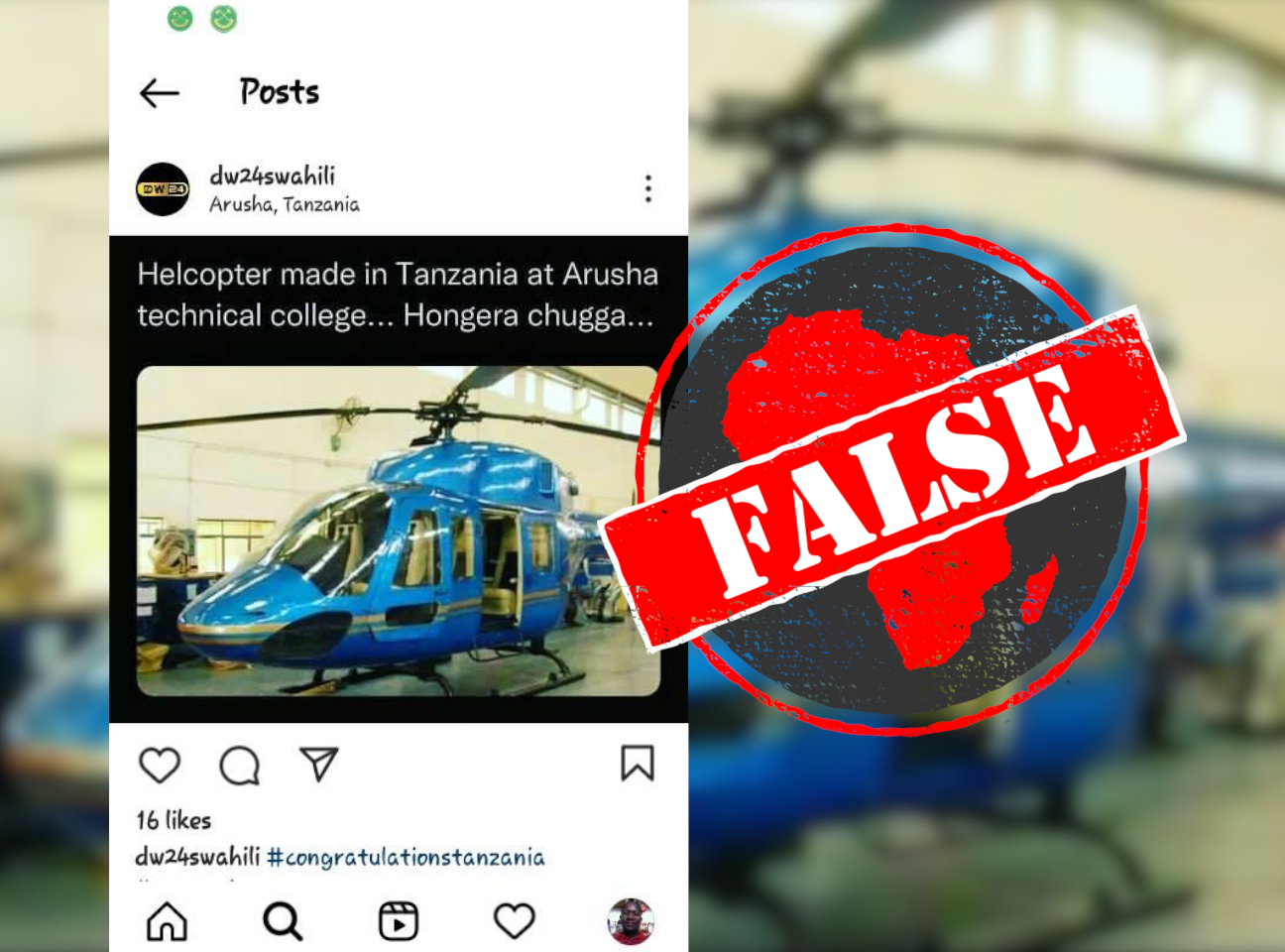IN SHORT: Despite it being reported in 2016 that Tanzania’s Arusha Technical College would soon be producing a two-seater helicopter, the images circulating on social media show an Indian-made chopper. There is no indication the Tanzanian aircraft is in production yet.
A Facebook user published a screenshot of a social media post, claiming a photo was of a helicopter built at Tanzania’s Arusha Technical College.
The screenshot shows a blue helicopter with two golden lines running horizontally, captioned: “Helcopter made in Tanzania at Arusha technical college … Hongera chugga …”
“Hongera” translates to “congratulations” in the Kiswahili language. “Chugga” appears to be a colloquial name for the city of Arusha.
It was reported in 2016 that a two-seater helicopter built by Arusha Technical College was in the final stages of production.
The programme was started by the mechanical and engineering department at the college with the intention of making affordable choppers.
This image and claim has also been posted here, here, here and here.
But are these reports true? We checked.

Doctored image
A Google reverse image search led us to a number of articles with the photo.
One article, published by the news website One India on 28 December 2015, reported that in the first week of the coming year Indian prime minister Narendra Modi would lay the foundation stone for the Hindustan Aeronautics Limited (HAL) helicopter facility in Gubbi, a town in the southwestern Indian state of Karnataka.
The original photo shows the logo HAL on the helicopter. However, the helicopter image in the Facebook posts circulating on East African social media has been doctored to remove the logo.
Arusha Technical College also posted the viral screenshot stamped “FAKE NEWS UZUSHI IPUUZE” on its official Facebook account.
This translates as “fake news ignore rumours”.
Republish our content for free
For publishers: what to do if your post is rated false
A fact-checker has rated your Facebook or Instagram post as “false”, “altered”, “partly false” or “missing context”. This could have serious consequences. What do you do?
Click on our guide for the steps you should follow.
Publishers guideAfrica Check teams up with Facebook
Africa Check is a partner in Meta's third-party fact-checking programme to help stop the spread of false information on social media.
The content we rate as “false” will be downgraded on Facebook and Instagram. This means fewer people will see it.
You can also help identify false information on Facebook. This guide explains how.


Add new comment